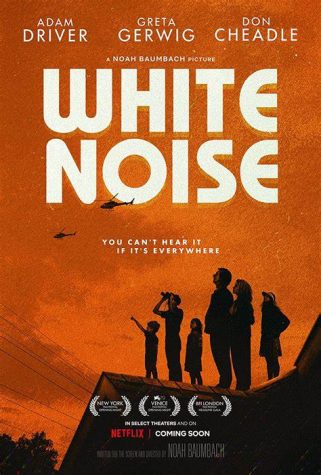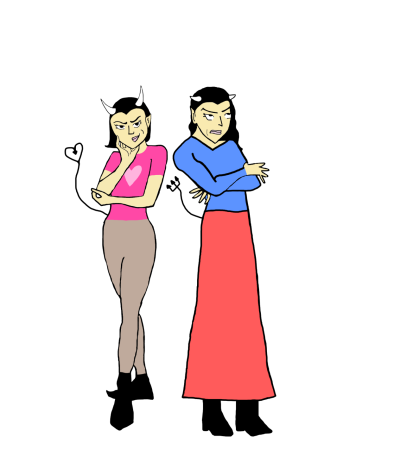Canceling cancel culture
December 15, 2022
After sitting in an online queue for at least six hours only to be denied by Ticketmaster, I was ready with my pitchfork. I didn’t get the tickets. Hundreds of thousands of fellow Swifties also wanted to burn Ticketmaster at the stake, canceling them to the point of no revival. Now that the ticket fiasco has become an even bigger deal to the general public, I wanted to take a better look at our motives for canceling. Are they justified, or are we simply canceling out of rage and selfishness?
Cancel culture is an unwieldy balance beam between our fundamental freedoms and hate speech. In March, The New York Times published its own editorial describing the tightrope, bluntly entitled “America Has A Free Speech Problem.”
Rooted in the political divisiveness of our country, ‘canceling’ has become a slang word for most young people. You can hear it casually thrown out in the RJ Reynolds school hallways when gossiping about the latest teen scandal. Although seemingly a funny joke, ‘canceling’ has become an influential buzzword that can have negative repercussions.
The reality is that many students don’t feel comfortable expressing their beliefs regarding social issues. Students with perfectly reasonable ideologies live in fear of being outliers against the general consensus. Take the midterms, for example. Certain candidates were consistently advertised at RJR due to personal connections. It was difficult for students who might disagree with the candidate’s beliefs on specific issues to speak out or feel comfortable around a mass that supports them.
This same difficulty controls the college application process. As a senior who’s spent many months working on supplemental essays, I was discouraged from writing about anything concerning my political beliefs. This was because of the possibility of someone with differing views being the admissions person dictating whether or not I get into my dream school. As a young person, shouldn’t I be encouraged to express my beliefs if they are something I am passionate about?
The issue at hand is the oversensitivity of our society. After spending so much time without human interaction during the COVID-19 Pandemic, the social boundaries of appropriateness have blurred. Today, people are too quick to attack anything they disagree with. They feel powerful enough to be aggressive online, knocking down those on the opposing side. Thus, anyone can cancel anyone at any time for saying anything. It’s justified by people’s self-centered attitude and the protection of a screen.
Cancel culture doesn’t always have to be negative, though. It can be a good thing, serving justice to those abused by prominent figures in society. For example, Harvey Weinstein and R. Kelly are two very powerful faces, both involved in well-known sex crimes. Those people indubitably deserved to be canceled. The #MeToo movement further sparked change in 2017, when sexual assualt victims gained more attention, using cancel culture as a positive force to bring light on dark secrets.
On the other side of what I’m calling the ‘cancelation spectrum’ are people who have made political statements that ultimately tarnished their reputations and careers. In 2003, popular country band The Chicks were heavily criticized and blacklisted from country radio stations after the lead singer said she was ashamed to be from the same state as George W. Bush in protest against the invasion of Iraq. Thirteen years later, NFL quarterback Colin Kaepernick kneeled during the National Anthem for the first time, making a statement against systemic racism and inequality. After several games of kneeling and huge internet buzz, Kaepernick was let go by the San Francisco 49ers because he was a “financial liability” because of his controversy.
Every influential person you’ve heard of has probably said or done something controversial. We’ve probably all thought of something controversial. The difference is that celebrities are given a platform and barely any privacy, two ingredients perfect for backlash.
The difference between free speech and hate speech is simple; thinking before you speak. Freedom of speech is a fundamental right that encourages controversial statements that invite change. Hate speech invites prejudice and hostility. Justification is necessary to walk the tightrope I previously mentioned. Rationality and sophistication are not granted to speakers of hatred (i.e., Kanye West) but are essential to those looking to make a positive difference.
Don’t get me wrong, I’m in the same boat as all you Swifties out there angrily pointing the finger at Ticketmaster. Instead of resorting to selfish forms of scrutiny, we must think clearly about our reasoning for canceling. Is the motive to stop a blood-sucking monopoly that takes from artists, or is it purely because we wanted to see “Lavender Haze” live? Thinking before you cancel is crucial when ensuring everyone’s voices are heard, even when disagreeing with what they’re saying.












